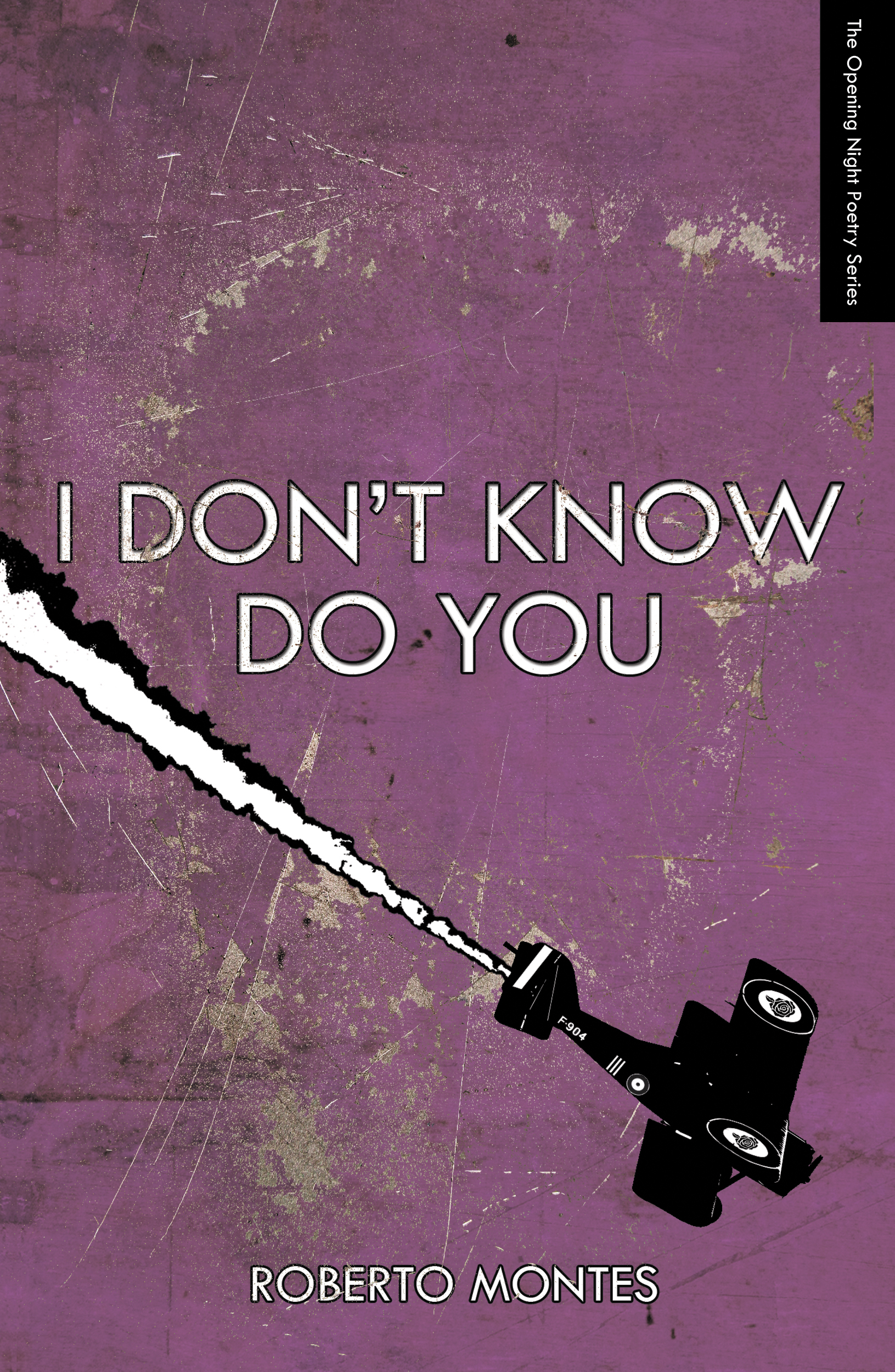Review: I DON’T KNOW DO YOU by Roberto Montes

Review by CHRIS EMSLIE
What Montes achieves in his debut collection of poems is the reverse of objectification. Rather than reducing the body of the beloved to a thing, a mere object of desire, Montes extends his relationships with ‘things’ in order to give his affections scope. An axe, a creek, a retreating fog—these become more than signifier and signified. Instead, these everyday objects are invested with the kind of emotional importance normally reserved for human (or at any rate, organic) lyric subjects. In Louise Glück’s poem ‘Rainy Morning,’ the speaker attests, “If you loved the world you’d have / images in your poems.” It is for this reason precisely that I Don’t Know Do You is overrun with these small romances. Montes is a poet in love with the world. He’s just more open than most when it comes to expressing it.
Taken as a whole, Montes’ book is nothing if not romantic (note the lower-case r). His poems scoop up their settings like a snow-globe and scrutinize them, not critically but with infatuation. Indeed, large sections of the book consist of poems titled under a common prefix, “Love poem for…” In these poems, Montes skirts the elegiac and addresses his lyrics to the strangest of auditors. “Love poem for that time with the perennials” denies the reader the comfort of a reliable scene. The speaker is constantly requalifying their surroundings, disrupting the reader’s foothold on the poem:
They are napping at the hotel
while room service waits patiently by the phone
to take care of everything.
I AM ACTUALLY VERY LONELY
is what I want to tell room service
but I am millions of miles away
boiling pasta in my underwear.
Actually, we are at the lake,
roasting September over a little fire.
Actually, the lake is in our mouths
and the trout are leaping out.
This speaker’s indecision about the poem’s locale, enacted in the recurrence of “actually,” destabilizes our understanding of the poet’s interaction with the material world. Montes welcomes this borderlessness, which enables the odd blend of whimsy and frankness that abounds in his work. Often, Montes writes in terse declaratives which, despite their confidence, shy away from the authoritarian. Their boldness cements Montes’ conceits. When he tells us in ‘The poet speaks of beauty’ that “Things are beautiful / when you feel compelled / to throw yourself into fire for them,” we believe him. In the hands of a clumsier poet, this tendency toward aphorism could give way to ego, but Montes brings his claims back down to earth with a bathetic clang: “More so when you have to start the fire yourself.” Montes’ self-awareness, then, lends his gestures sincerity—a notion he simultaneously champions and dismantles.
Montes’ habit of playing with his readers’ ideas of love and sincerity opens a way into the political, which he tackles with his characteristic irreverence. In “Love poem for relentless democratic action,” the speaker’s intimacy with the physical world prompts a shift into the rhetoric of contemporary leftist movements:
What we need now is a return
to our roots, I make out with
a mouthful of grass. You make out
with the crosswalk, a real capitalist.
A sexy, auditorium capitalist.
In this moment, Montes plays with his lyrical inheritance. Echoing the structure of Frank O’Hara’s Lunch Poems, the speaker here “make[s] out with / a mouthful of grass” in what is arguably a sly nod towards Walt Whitman. Poking fun at O’Hara and Whitman is hardly a surprising move for a poet who elsewhere attests that “All poets are queer and if you’re not queer you’re not a poet”. This statement shows us Montes at his most assertive.
As with the aforementioned love poems, a good number of the pieces in I Don’t Know Do You are united by the shared title “One way to be a person is to…” These poems provide the space in which Montes’ poetics and politics come together. A resolutely queer writer, Montes enters into dialogue with the landscape to reject heteronormativity in a style that would be heavy-handed if it wasn’t so funny. Even his titles hint to a healthy, if absurdist, sense of humor. ‘One way to be a person is to lower your inhibitions in a manner consistent with the crowd around you’ conflates adventurous pastoral with homosexual desire. The speaker tells us that “A dream is wet when you insist / a raft,” riffing on the hyper-masculine tropes of the so-called great outdoors. “For some men”, Montes says, “it’s impossible // to follow. Some men simply / enter the water.”
At times, the succession of short, proclamatory sentences results in a flattening of language that detracts from Montes’ deftness. This problem occurs in the prose poems, where uniformity gives over to an accidental monotone. Fortunately, these moments are few and far between. For the most part, Montes offers us poems that at once challenge and invite, adopting the lens of the big-budget Hollywood romance to reinscribe the banal in the language of apostrophe. Montes’ beloved, though, is not so much absent as ubiquitous. In I Don’t Know Do You we hear speakers so involved in their habitats that they in turn are inhabited by them. Tongues are “wet gurneys,” rivers are “kinder, more emotionally available.” For Montes, it seems, the whole world is available, and he avails himself of it with aplomb.